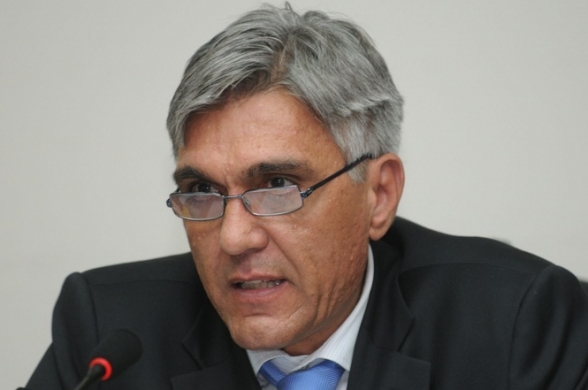Mr Stanković and Ms Ljubičić stressed that strengthening of administrative capacities, particularly in the EU integration process, was one of the priorities within the competences of secretaries general, thus both parliaments paid a special attention to continuous development of human resources. The previous activities of the Service of the Parliament of Montenegro were presented at the meeting, primarily regarding drafting and applying the Human Resources Development Strategy, implementation of the Plan of Training and Professional Staff Development, analyses of workload and other.
Having in mind that drafting the text of working version of a law on the Parliament of Montenegro is envisaged by the Action Plan for Strengthening the Legislative and Oversight Role of the Parliament of Montenegro in 2015, at today’s meeting, the interlocutors particularly discussed the Law on National Assembly of Serbia, adopted in 2010. Secretary General Ms Ljubičić presented the most significant innovations introduced by this Law relating primarily to the aspect of financial autonomy of parliament, relationship with other state bodies as well as solutions directed towards the improvement of the National Assembly of Serbia Service.
Furthermore, given that the Action Plan of the Parliament of Montenegro for the current year envisages the improvement of procedures for addressing of citizens to the Parliament of Montenegro, one of the topics was – handling applications submitted by citizens. With regard to that, experiences of the Assembly of the Republic of Serbia were presented in application of the Rulebook on handling suggestions, petitions and complaints of citizens addressed to the National Assembly, which regulates the procedure for processing citizens' complaints and action of the Assembly i.e. the competent working bodies.
During the conversation on openness of parliaments and models of cooperation with citizens, Ms Ljubičić was particularly interested in project “Democracy Workshops”, implemented by the Parliament of Montenegro since 2012. Mr Stanković informed that the Parliament of Montenegro was organising a project in the form of programme of civil education for students of primary schools, with the aim of encouraging the interest of youth for politics and democratic processes. He pointed out that from the beginning of the implementation of the programme, over 14,000 students of elementary schools from Montenegro participated in the project.
Secretaries generals shared experiences regarding the enforcement of public procurements in parliaments, particularly with regard to certain legislative regulations and their application in practice.
Having in mind that improvement of parliamentary work requires constant strengthening of administrative capacities, the importance of sharing experiences was emphasised, as one of the forms for improving the knowledge and expertise of employees and continuation of successful cooperation of the two parliaments’ services in different segments.








